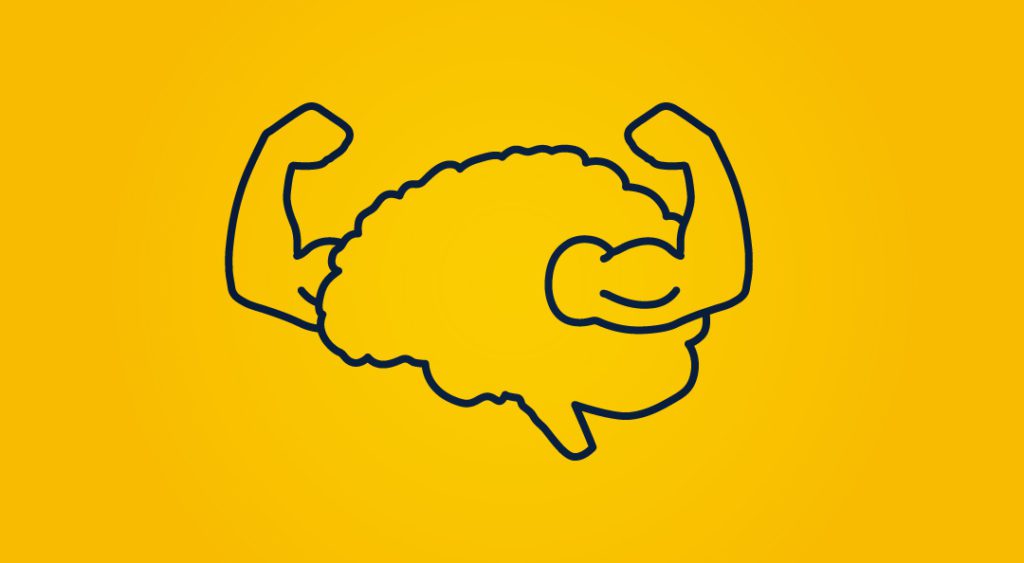Mental Health in Our New Normal

Mental health is important, especially during the formative years of adolescence and young adulthood. We recognize and support the ongoing mental health of our members, Sigma Tau Gamma has partnered with Bryan Wempen, Nebraska at Kearney, an author,and speaker to produce a guest blog on the topic of mental health.
How do I deal with isolation during a pandemic and beyond?
We are all experiencing several “firsts” during this point in our history. Losing our routines (which, to be honest, once felt slightly unexciting,) removing options to physically be around friends, family, and even strangers, and changing how and where we do our work are huge adjustments. Having several of these changes take place at once is making many of us feel unsettled.
During our life, we will often experience being alone and feeling lonely. Most importantly, you must know that it is all right to feel, whatever you are feeling. Having these emotions are what make us human. These feelings will not last; they are not facts about your life, they are just feelings. Life is different; we have not been presented with these new day-to-day lives in the United States in most of our lifetimes.
How I deal with isolation during this pandemic and beyond?
- Call people – I have a conversation, asking them how they are doing, and sharing how I’m feeling that day.
- Virtual calls (Zoom, Facetime, Skype, etc.) – This provides me with a connection; to see and to be seen by other people.
- Reading – It requires more focus than watching a movie or binging on Netflix. It gets me out of my thoughts for a while.
- Activity – Get out to walk, cycle, exercise, or lots of proper deep breathing. The change in scenery helps shift my perspective.
- Telehealth – If you’re able to check-in with a therapist or psychologist with a virtual visit, professional conversations can support mental health.
How do I deal with stress?
Stress is an interesting and collective experience, but it is the frequency, severity, and length of it all which makes all the difference. We are processing a variety of emotions and past experiences comprised of negatives and positives when confronted with a stressful situation. I have found acknowledging, “Hey, I’m stressing about this,” helps size the situation correctly. I have learned from doing years of considerable personal work and being in long-term recovery from alcohol dependence, how to size the situation more appropriately. There are big things in life that deserve the weightiness due to significance; many others I have found do not require or justify putting energy into the situation. The more I use tools I have developed to help me cope with stress, fear, resentment, joy, and excitement, the more straightforward and more consistent my solutions end up. I have encountered many who require additional support and professional services to manage how their stress gets processed; post-traumatic stress, a more well-known disorder, takes time and support to recover. My experiences are both personal and observational only; I am not a psychologist.
A helpful acronym I learned years ago for gauging my stress is HALT. I use this when I encounter a stressful situation that I am aware of is impacting how I feel more significantly:
H – Hungry
What have I had to eat today? When did I eat? How much caffeine and sugar did I consume today? These are all physical reaction questions I have used to learn to cope with stress.
A – Angry
Remember, anger is another feeling we have as humans, and feelings are normal to feel. It is how we respond to the situation, people, and ourselves about what is happening that is key. I have learned in the work I have done on coping with emotional stress on how to communicate anger that I will not have to apologize for later.
L – Lonely
Connecting is feeling connected to a like-minded person or cause; I engage in an interaction. Feeling alone and loneliness is common, it is entirely reasonable for more reasons than we can probably list. When is the last time you reached out to a friend or family member you like to talk to, albeit causally? Do have a group, whether it be for social, support, spiritual, or active (running, biking, etc.?) They want to hear from you. Call/text/write them, think about it this way: they might need to hear more from you, then you from them. It is a big topic; it is an essential part of coping with life. Pets as companions, something to connect with, is comforting if prepared to be a responsible pet owner. Otherwise, you have added additional stress for your pet and you.
T – Tired
Sleep! We are generally sleep-deprived, and we are tired. It is dangerous to our health, both physical and emotional. Many of us go weeks, months, and years without getting the recommended amount of sleep. Lack of sleep results in stressful situations feeling more significant than the facts support. I am yet to meet anyone who did not experience more precise decision making after getting a decent amount of rest. Sleeping does not make hard decisions go away or tough parts of life any more comfortable, but it might make the path to resolution less bumpy and quicker.
Where can I find additional resources?
The organization Mental Health America is a great place to start. You can find quick facts and statistics about mental health, view research and reports, find tools for managing your mental health, and find mental health providers in your area. They even offer free pre-screening for common mental health issues if you have a concern about yourself or someone else but aren’t sure about going to a medical doctor or psychologist.

Bryan Wempen, an author and speaker, was born in Redwood City, California, and grew up in Wyoming and Nebraska. His teens got complicated by daily drinking, which took off in college along with the introduction of drugs into a progressively destructive lifestyle. He was a member of Sigma Tau Gamma and the Army National Guard. The drug use stopped, and drinking slowed in his early career after obtaining his degree from the University of Nebraska-Kearney, but then kicked up a notch in parallel with his business success. Several more years of corporate binge drinking, relationships starting, relationships ending, personal failures, and business successes pushed Bryan to ask himself if he could stop his drinking. In May 2010, after 27 years of alcohol, he couldn’t stop. So he asked a friend and former business associate for help. He has been sober and in recovery since then.
Bryan’s first book in 2015, “Note to Self: A Collection of 99 Life Lessons,” was about the next chapters in life, micro-lessons at a time. In his latest book in 2019, “Sober Is Better, a Note to Self,” Bryan shares his journey into and out of daily drinking to a recovery lifestyle. He highlights how messy and restoring addiction-recovery can be for those willing to keep trying.
Bryan and his wife Michella reside in Santa Fe, New Mexico.
ABOUT SIGMA TAU GAMMA FRATERNITY
Founded at the University of Central Missouri on June 28, 1920, Sigma Tau Gamma Fraternity celebrated 100 years of brotherhood in 2020. In the last 100 years, the organization has called 193 campuses home and has more than 73,000 initiated members. With a current presence on 80 campuses from coast to coast, our membership includes more than 2,700 undergraduate men. The Headquarters, which is home to the Fraternity, Foundation, and WPN Housing Company, is located in Indianapolis, Indiana. Visit https://sigtau.org for additional information.